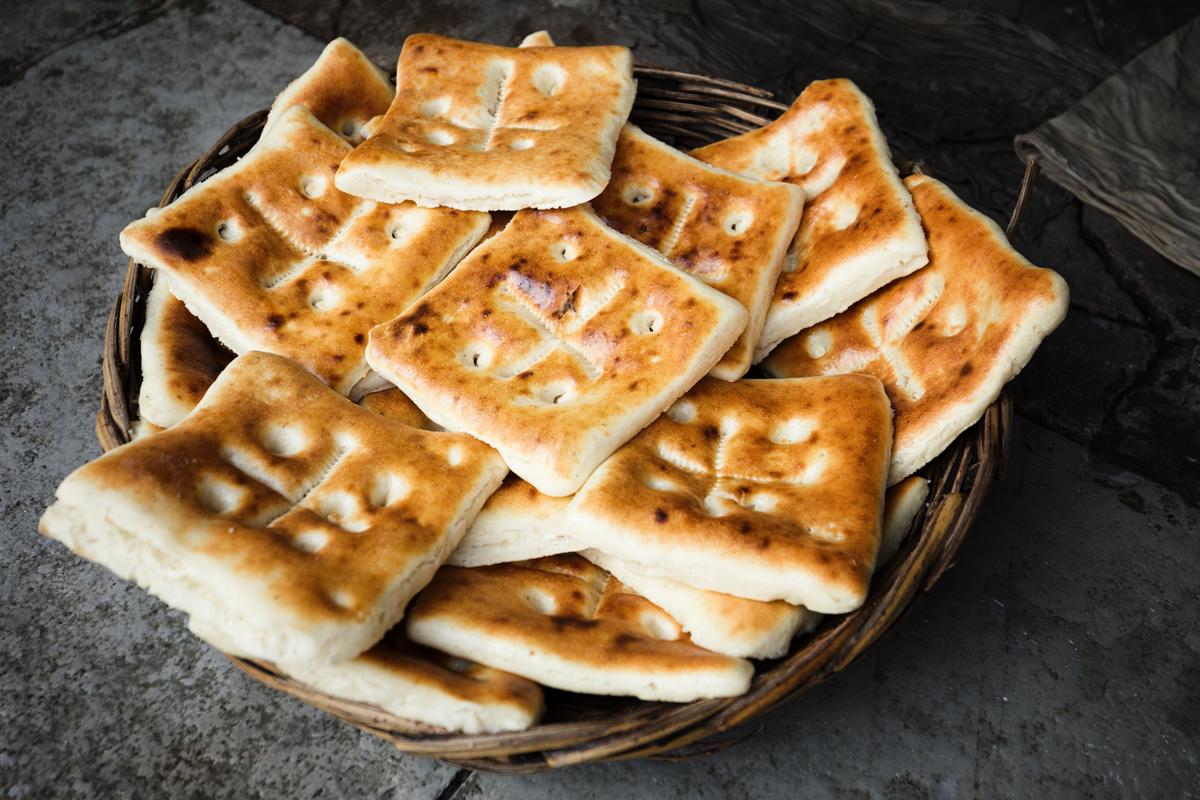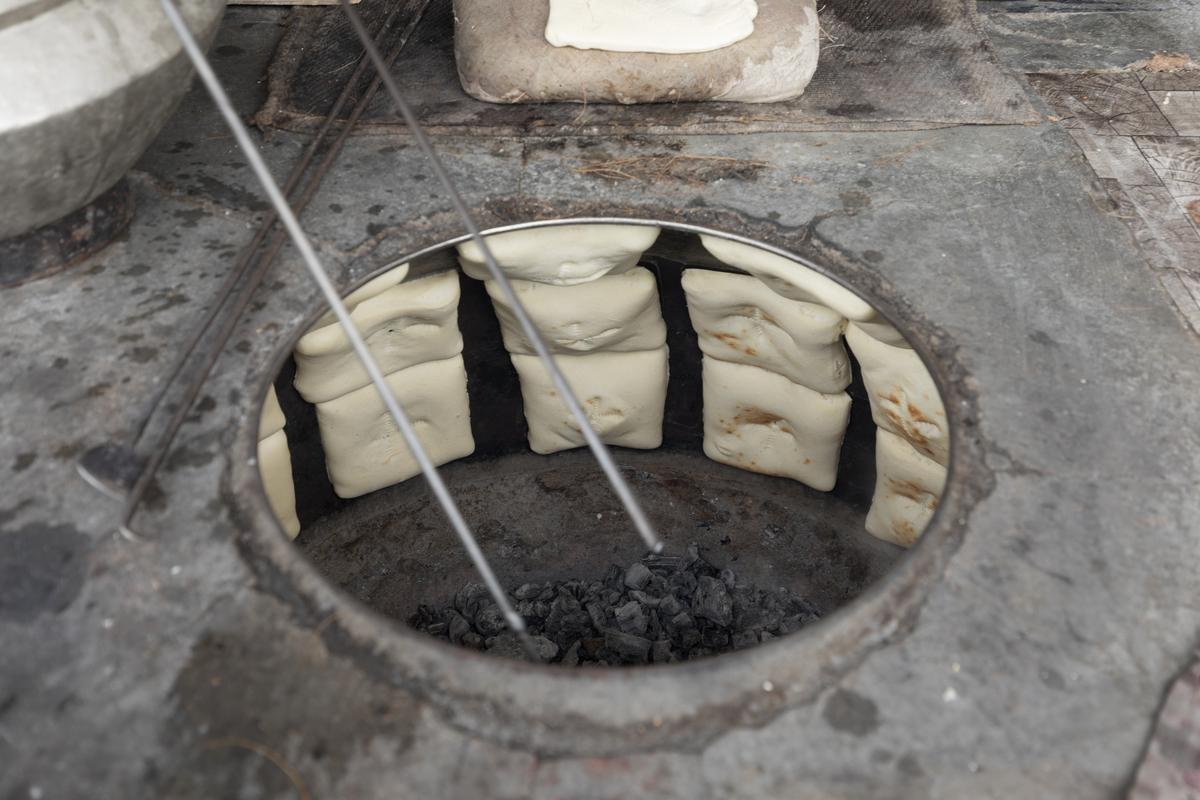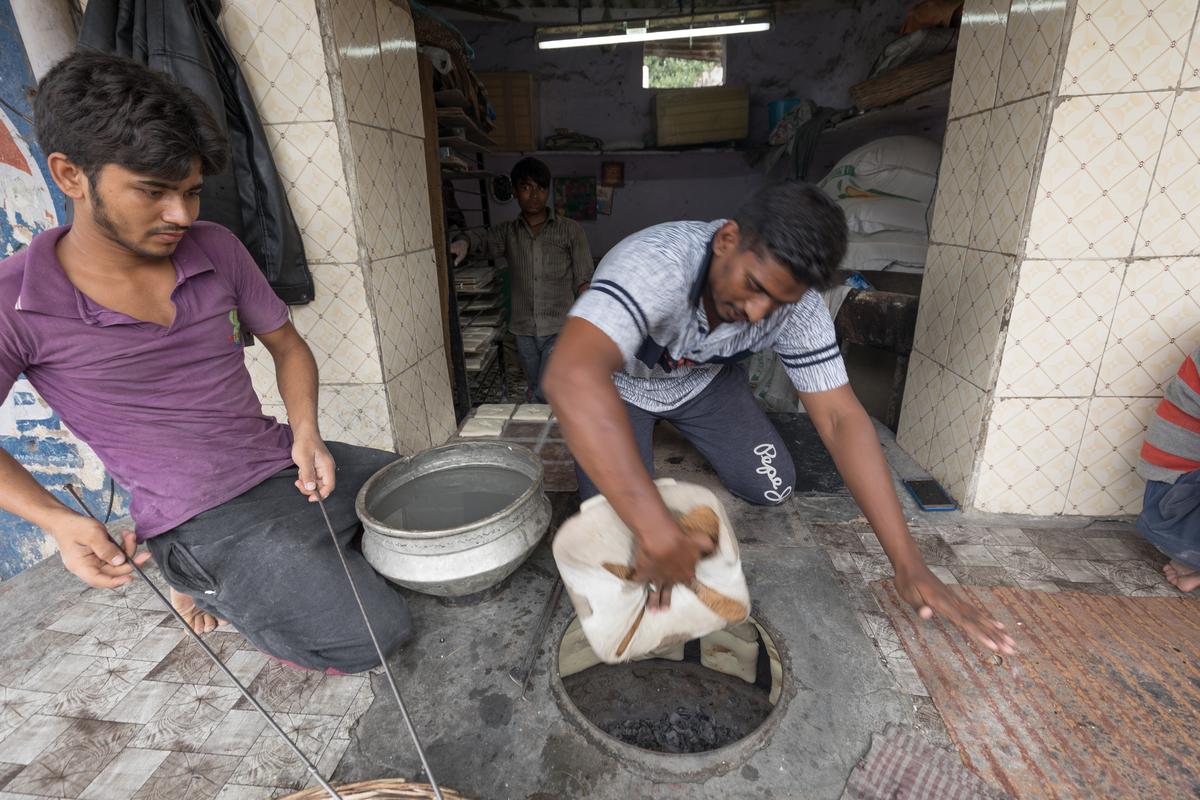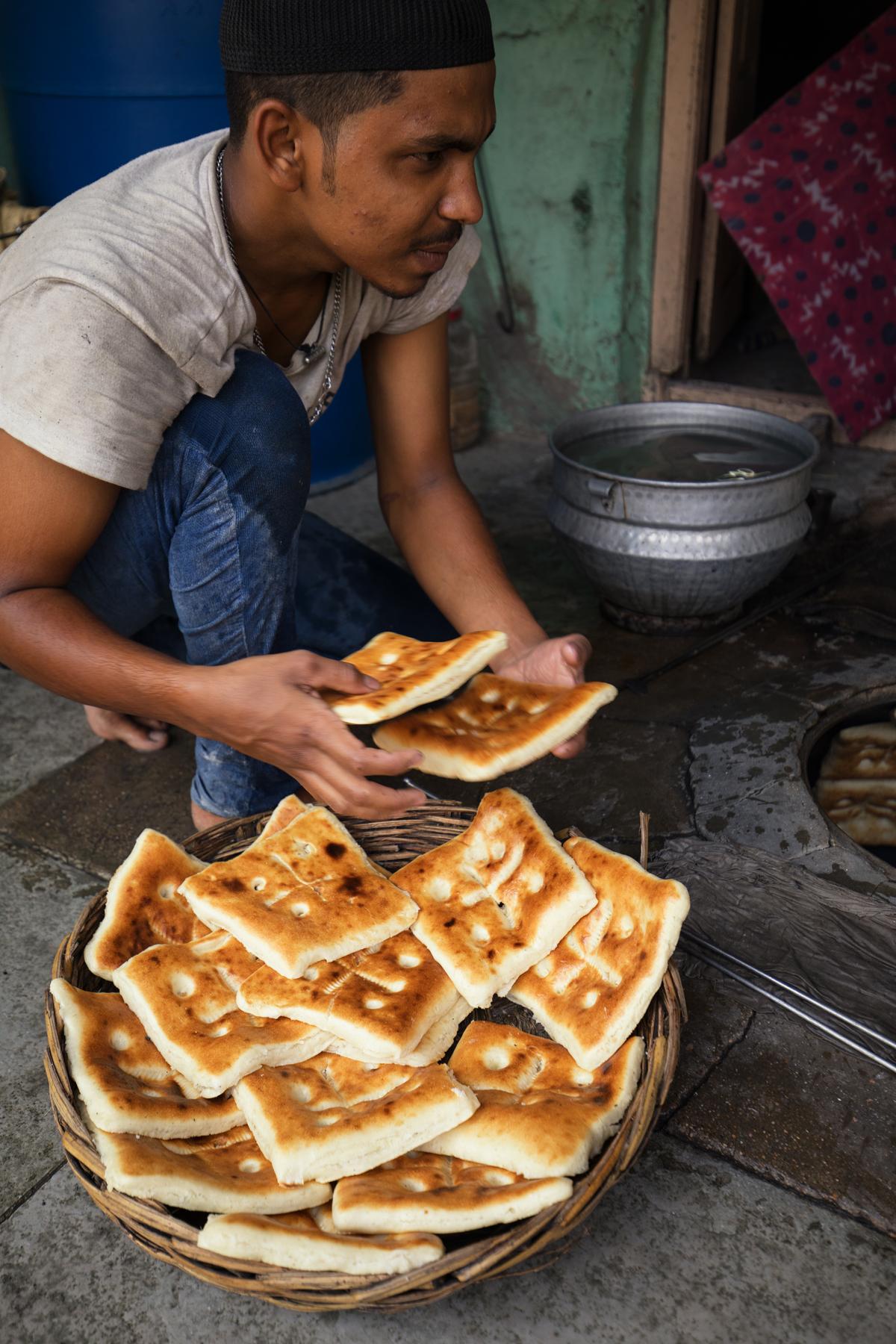
The Munshi Naan Shop at Purani Haveli
| Photo Credit: Serish Nanisetti
Munshi Naan is a corner bakery in the wall that has been in continued existence from 1851. For generations of residents of the Hyderabad’s old city, Munshi Naan means a warm square bread, that is torn, dunked in a nihari or soup and savoured. Now, nearly 174 years later, the days of Munshi Naan at Purani Haveli are numbered as the shop and bakery are marked for demolition for the Hyderabad Metro Rail phase II corridor which includes the metro’s lines connecting Hyderabad to the airport, and also a line connecting Chandrayangutta to MGBS line for the Old City.
It is one of the oldest bakeries in the area and starts work as early as 5.30am. Business is slow, because it is summer, but the warm square breads keep getting baked and packed for buyers who keep streaming in parking, paying and taking away the packages.
A usual morning at Munshi Naan, the 174-year-old shop at Purani Haveli, Hyderabad
| Video Credit:
SERISH NANISETTI
Hameed says he is waiting for the compensation cheque from the Hyderabad Metro Rail Limited (HMRL). He said, “A few establishments received their cheques and moved out. We are waiting and also searching for places to take on rent. With the news of demolition, the areas that are unaffected have hiked rents and are quoting nothing less than ₹50,000 per month for rent. The deposit amount is also high.”


Hameed says after losing this shop that was established by his grandfather in 1851, there is no way he can afford to purchase another space. Any new space, would have to be taken on rent.

Each naan is priced at ₹20
| Photo Credit:
Sanjay Borra
A staple
Munshi Naan bakes char kona naan, a bread that is popular in Hyderabad’s old city. Munshi Naan gets name from its founder Mohammed Hussain, who worked as a munshi (clerk) in the office of Hyderabad’s fourth Nizam, Nasir-us-Daula. He learnt the recipe from Delhi and started his own establishment in 1851. This naan shop has been baking the breads in the bhatti, (a traditional tandoor), from its inception.

The square shaped bread is believed to have originated in Purani Haveli in Hyderabad, India.
| Photo Credit:
Sanjay Borra
Fermented dough is shaped in squares by hand. These are then placed on a dense pillow made with cloth. A very basic design is made with a metal comb, a quick water wash (like egg wash) and then it is stuck into the walls of the circular oven. Within a matter of 10-15 minutes the naans are ready. At a time 42 naans can be baked. Each naan is priced ₹20.

Naan making progress at Munshi Naan
| Photo Credit:
Sanjay Borra
These naans are thick, ideal as dip breads for Indian soups like paya, shorba and marag. When out of the oven, the crust is crisp with a dense body, making it ideal to soak in the liquid gravies.

When asked if the affected establishments have written to the departments concerned requesting a change of plan, “As asked by the Hyderabad Metro Department, we wrote letters and petitions with suggestions and alternative plans. We have no response yet,” Hameed says.

Freshly baked naan out of the oven
| Photo Credit:
Sanjay Borra
Will they continue to be in Old City when they re-establish after the demolition? “Yes, we will continue to be in the Old City, because Munshi Naan’s story is connected to this place,” adds Hameed.
It is where the bhatti lies, and where the bhatti will remain.
Published – April 25, 2025 04:39 pm IST







